It’s election time. Time to vote in or poll out time-tested lawmakers, who have enriched expressions such as horse-trading and heavyweight
It’s election time. Time to vote in or poll out time-tested lawmakers, who have enriched expressions such as horse-trading and heavyweight, most aptly called bahubali in Hindi, in the political lexicon of the world’s biggest democracy.
A person in jail may not be entitled to vote, but s/he can contest an election. Once elected, s/he can also become a powerful minister.
It’s an irony that lawmakers, despite being “public servants”, aren’t governed by rules applicable to other appointed, not elected, public servants.
Keen to coexist with political musclemen who can ensure votes via coercion or through the barrel of the gun, almost all political leaders in India justify the ill-system, saying a person can’t be held criminal or corrupt unless s/he is convicted by the supreme court (SC).
Delayed justice and escape routes such as bail and stay on a sentence serve the cause of lawmakers, who are slur on the democratic system.
The founding fathers of the well-argued constitution may not have conceived even in their wildest of dreams that a time will come when lawbreakers will become lawmakers.
Unfortunately, SC also missed the opportunity to rectify this lacuna when the judges interpreted the sacred clause of “immunity” from court action and legal proceedings the constitution-makers provided to ensure elected representatives do not feel threatened in expressing their views in parliament.
Parliament or a legislative assembly forms the basic feature of the constitution. But by holding that a person who gives bribe to lawmakers for their actions inside the House is liable to criminal action, the court’s judgment, in fact, gave a shot in the arm to a section of corrupt MPs and MLAs.
It was because of their overnight hopping from one party to the other and turning their loyalty into treachery that the anti-defection law had to be enacted.
The situation remains static. Sometime back the apex court stressed the need for good governance as it observed, “It’s in the context of good governance, there is a need for purity of system, equality and public perception, both internally and internationally.
“Would you (government) appoint a person, judge or an election commissioner against whom a charge or offence is pending?”
Last week, while disposing of an appeal by a defeated candidate in Punjab, the judges said: “Before parting with the case, we would like to reiterate that in a democratic country the will of the people is paramount and the election of an elected candidate should not be lightly interfered with.
“At the same time, it is the bounden duty and obligation of the court to ensure that purity of election process is fully safeguarded and maintained.”
Thus, the court left it to the electorate to make a sane choice while exercising its franchise.
A study by NGO National Network for India Trust reveals in the 2004 general elections, of the 3,182 candidates surveyed (total contestants 5,435), 518 or 16.28% belonging to major political parties had criminal antecedents.
Another study says nearly 100 members elected to parliament in the last general elections had criminal antecedents.
The election commission has suggested in its reforms proposal that once a charge is framed against a person by a court for a certain offence, during a period of at least six months prior to elections, such a person should not be allowed to contest any election till he is cleared of the charge by the courts.
b_rakesh@dnaindia.net![submenu-img]() This singer left Air Force, sang at churches, became superstar; later his father killed him after...
This singer left Air Force, sang at churches, became superstar; later his father killed him after...![submenu-img]() Indian-origin man says Apple CEO Tim Cook pushed him...
Indian-origin man says Apple CEO Tim Cook pushed him...![submenu-img]() Anil Ambani’s Rs 96500000000 Reliance deal still waiting for green signal? IRDAI nod awaited as deadline nears
Anil Ambani’s Rs 96500000000 Reliance deal still waiting for green signal? IRDAI nod awaited as deadline nears![submenu-img]() Most popular Indian song ever on Spotify has 50 crore streams; it's not Besharam Rang, Pehle Bhi Main, Oo Antava, Naina
Most popular Indian song ever on Spotify has 50 crore streams; it's not Besharam Rang, Pehle Bhi Main, Oo Antava, Naina![submenu-img]() Did Diljit Dosanjh cut his hair for Amar Singh Chamkila? Imtiaz Ali reveals ‘he managed to…’
Did Diljit Dosanjh cut his hair for Amar Singh Chamkila? Imtiaz Ali reveals ‘he managed to…’ ![submenu-img]() DNA Verified: Is CAA an anti-Muslim law? Centre terms news report as 'misleading'
DNA Verified: Is CAA an anti-Muslim law? Centre terms news report as 'misleading'![submenu-img]() DNA Verified: Lok Sabha Elections 2024 to be held on April 19? Know truth behind viral message
DNA Verified: Lok Sabha Elections 2024 to be held on April 19? Know truth behind viral message![submenu-img]() DNA Verified: Modi govt giving students free laptops under 'One Student One Laptop' scheme? Know truth here
DNA Verified: Modi govt giving students free laptops under 'One Student One Laptop' scheme? Know truth here![submenu-img]() DNA Verified: Shah Rukh Khan denies reports of his role in release of India's naval officers from Qatar
DNA Verified: Shah Rukh Khan denies reports of his role in release of India's naval officers from Qatar![submenu-img]() DNA Verified: Is govt providing Rs 1.6 lakh benefit to girls under PM Ladli Laxmi Yojana? Know truth
DNA Verified: Is govt providing Rs 1.6 lakh benefit to girls under PM Ladli Laxmi Yojana? Know truth![submenu-img]() Alia Bhatt wears elegant saree made by 163 people over 1965 hours to Met Gala 2024, fans call her ‘princess Jasmine’
Alia Bhatt wears elegant saree made by 163 people over 1965 hours to Met Gala 2024, fans call her ‘princess Jasmine’![submenu-img]() Jr NTR-Lakshmi Pranathi's 13th wedding anniversary: Here's how strangers became soulmates
Jr NTR-Lakshmi Pranathi's 13th wedding anniversary: Here's how strangers became soulmates![submenu-img]() Streaming This Week: Heeramandi, Shaitaan, Manjummel Boys, latest OTT releases to binge-watch
Streaming This Week: Heeramandi, Shaitaan, Manjummel Boys, latest OTT releases to binge-watch![submenu-img]() Remember Ayesha Kapur? Michelle from Black, here's how actress, nutrition coach, entrepreneur looks after 19 years
Remember Ayesha Kapur? Michelle from Black, here's how actress, nutrition coach, entrepreneur looks after 19 years![submenu-img]() Remember Heyy Babyy's cute 'Angel' Juanna Sanghvi? 20 year-old looks unrecognisable now, fans say 'her comeback will...'
Remember Heyy Babyy's cute 'Angel' Juanna Sanghvi? 20 year-old looks unrecognisable now, fans say 'her comeback will...'![submenu-img]() DNA Explainer: Why Harvey Weinstein's rape conviction was overturned, will beleaguered Hollywood mogul get out of jail?
DNA Explainer: Why Harvey Weinstein's rape conviction was overturned, will beleaguered Hollywood mogul get out of jail?![submenu-img]() What is inheritance tax?
What is inheritance tax?![submenu-img]() DNA Explainer: What is cloud seeding which is blamed for wreaking havoc in Dubai?
DNA Explainer: What is cloud seeding which is blamed for wreaking havoc in Dubai?![submenu-img]() DNA Explainer: What is Israel's Arrow-3 defence system used to intercept Iran's missile attack?
DNA Explainer: What is Israel's Arrow-3 defence system used to intercept Iran's missile attack?![submenu-img]() DNA Explainer: How Iranian projectiles failed to breach iron-clad Israeli air defence
DNA Explainer: How Iranian projectiles failed to breach iron-clad Israeli air defence![submenu-img]() This singer left Air Force, sang at churches, became superstar; later his father killed him after...
This singer left Air Force, sang at churches, became superstar; later his father killed him after...![submenu-img]() Most popular Indian song ever on Spotify has 50 crore streams; it's not Besharam Rang, Pehle Bhi Main, Oo Antava, Naina
Most popular Indian song ever on Spotify has 50 crore streams; it's not Besharam Rang, Pehle Bhi Main, Oo Antava, Naina![submenu-img]() Did Diljit Dosanjh cut his hair for Amar Singh Chamkila? Imtiaz Ali reveals ‘he managed to…’
Did Diljit Dosanjh cut his hair for Amar Singh Chamkila? Imtiaz Ali reveals ‘he managed to…’ ![submenu-img]() Watch: Arti Singh gets grand welcome at husband Dipak's house with fairy lights and fireworks, video goes viral
Watch: Arti Singh gets grand welcome at husband Dipak's house with fairy lights and fireworks, video goes viral![submenu-img]() Meet actress, who belongs to family of superstars, quit films after 19 flops, no single hit in 9 years; is still worth…
Meet actress, who belongs to family of superstars, quit films after 19 flops, no single hit in 9 years; is still worth…![submenu-img]() IPL 2024: Suryakumar Yadav's century power MI to 7-wicket win over SRH
IPL 2024: Suryakumar Yadav's century power MI to 7-wicket win over SRH![submenu-img]() DC vs RR, IPL 2024: Predicted playing XI, live streaming details, weather and pitch report
DC vs RR, IPL 2024: Predicted playing XI, live streaming details, weather and pitch report![submenu-img]() Watch: Team India’s new jersey for T20 World Cup 2024 unveiled
Watch: Team India’s new jersey for T20 World Cup 2024 unveiled![submenu-img]() DC vs RR IPL 2024 Dream11 prediction: Fantasy cricket tips for Delhi Capitals vs Rajasthan Royals
DC vs RR IPL 2024 Dream11 prediction: Fantasy cricket tips for Delhi Capitals vs Rajasthan Royals![submenu-img]() IPL 2024: Kolkata Knight Riders take top spot after 98 runs win over Lucknow Super Giants
IPL 2024: Kolkata Knight Riders take top spot after 98 runs win over Lucknow Super Giants![submenu-img]() Indian-origin man says Apple CEO Tim Cook pushed him...
Indian-origin man says Apple CEO Tim Cook pushed him...![submenu-img]() Meet man whose salary was only Rs 83 but his net worth grew by Rs 7010577000000 in 2023, he is Mukesh Ambani's...
Meet man whose salary was only Rs 83 but his net worth grew by Rs 7010577000000 in 2023, he is Mukesh Ambani's...![submenu-img]() Job applicant offers to pay Rs 40000 to Bengaluru startup founder, here's what happened next
Job applicant offers to pay Rs 40000 to Bengaluru startup founder, here's what happened next![submenu-img]() Viral video: Family fearlessly conducts puja with live black cobra, internet reacts
Viral video: Family fearlessly conducts puja with live black cobra, internet reacts![submenu-img]() Woman demands Rs 50 lakh after receiving chicken instead of paneer
Woman demands Rs 50 lakh after receiving chicken instead of paneer


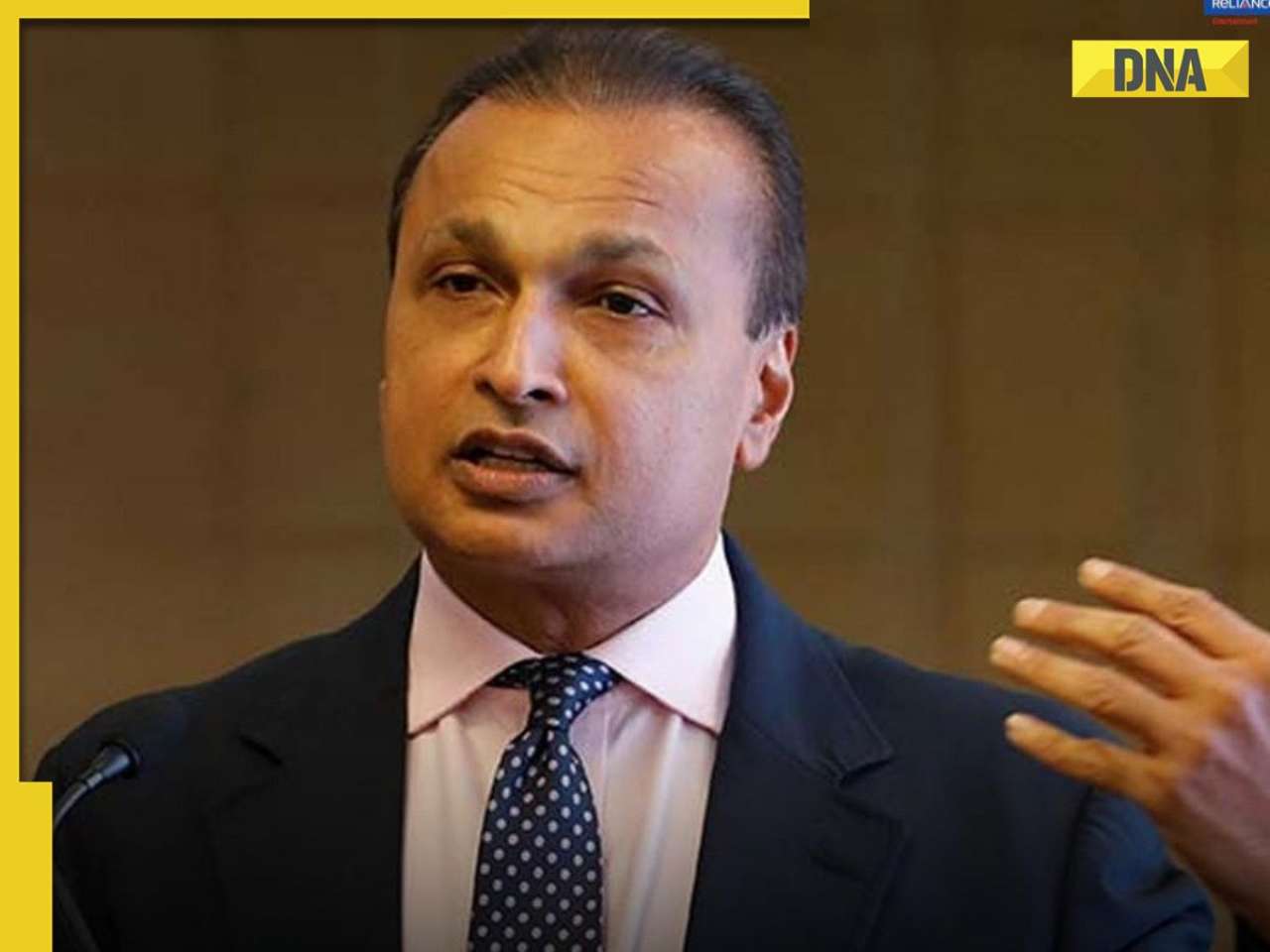

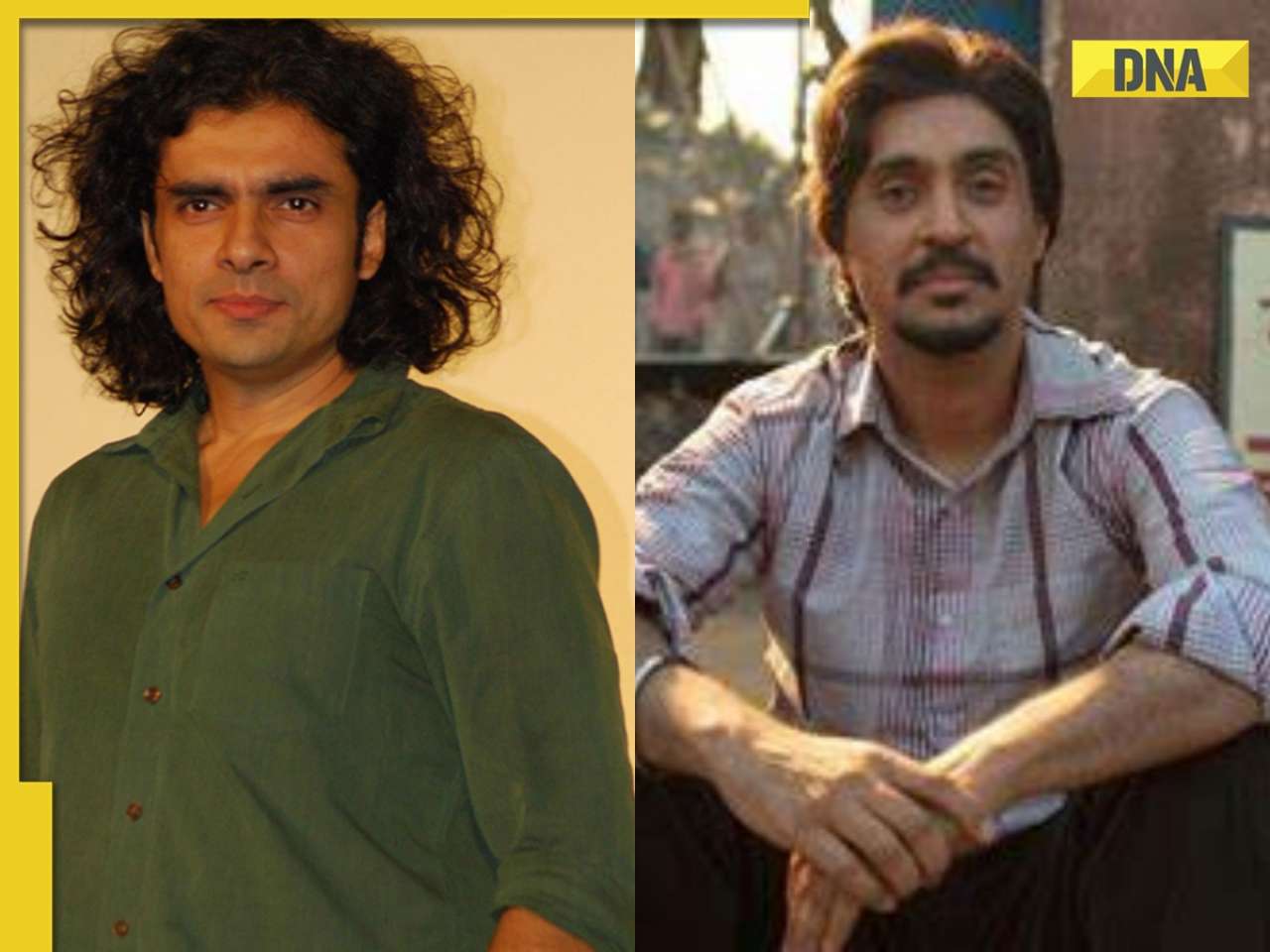























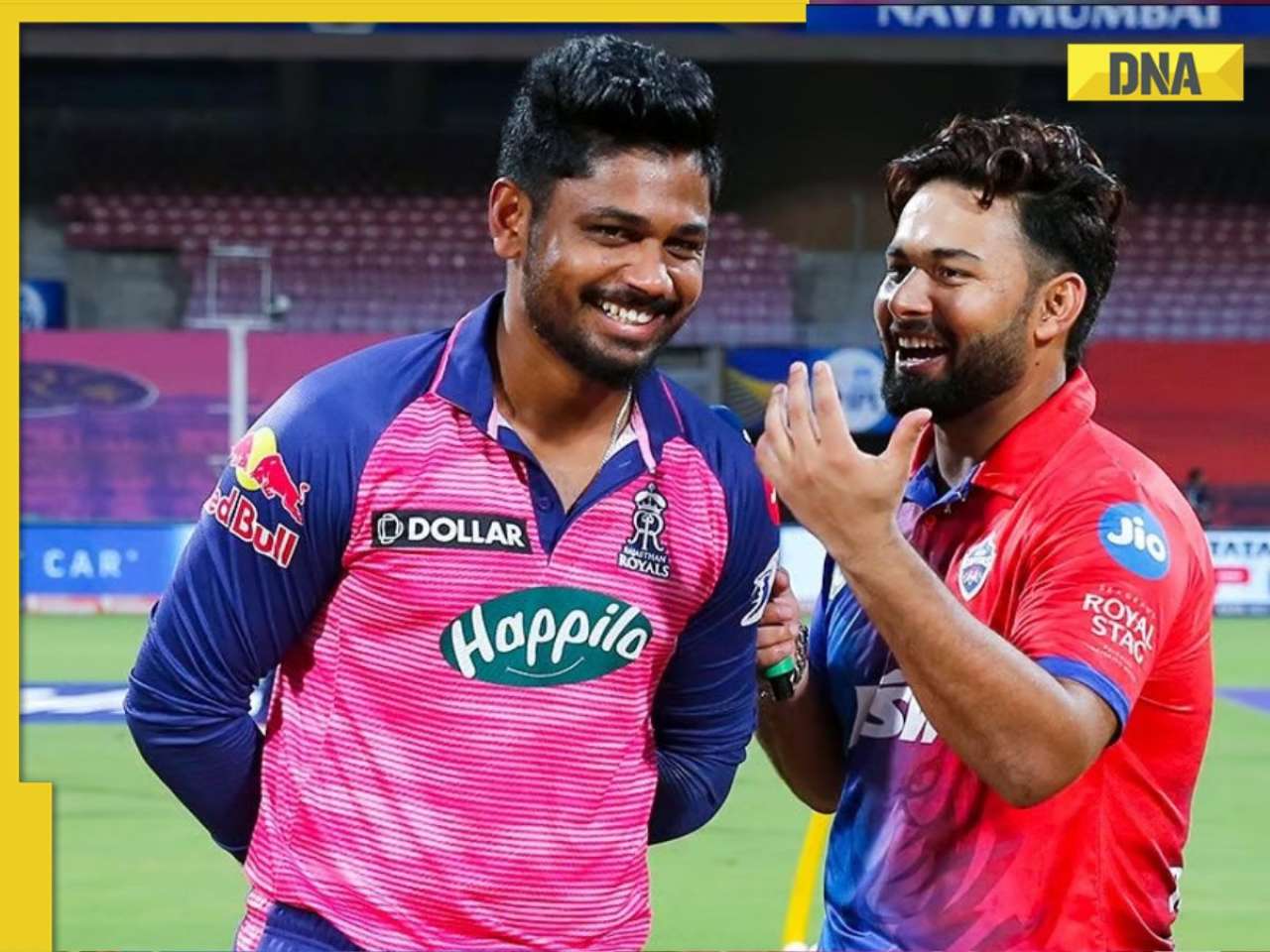



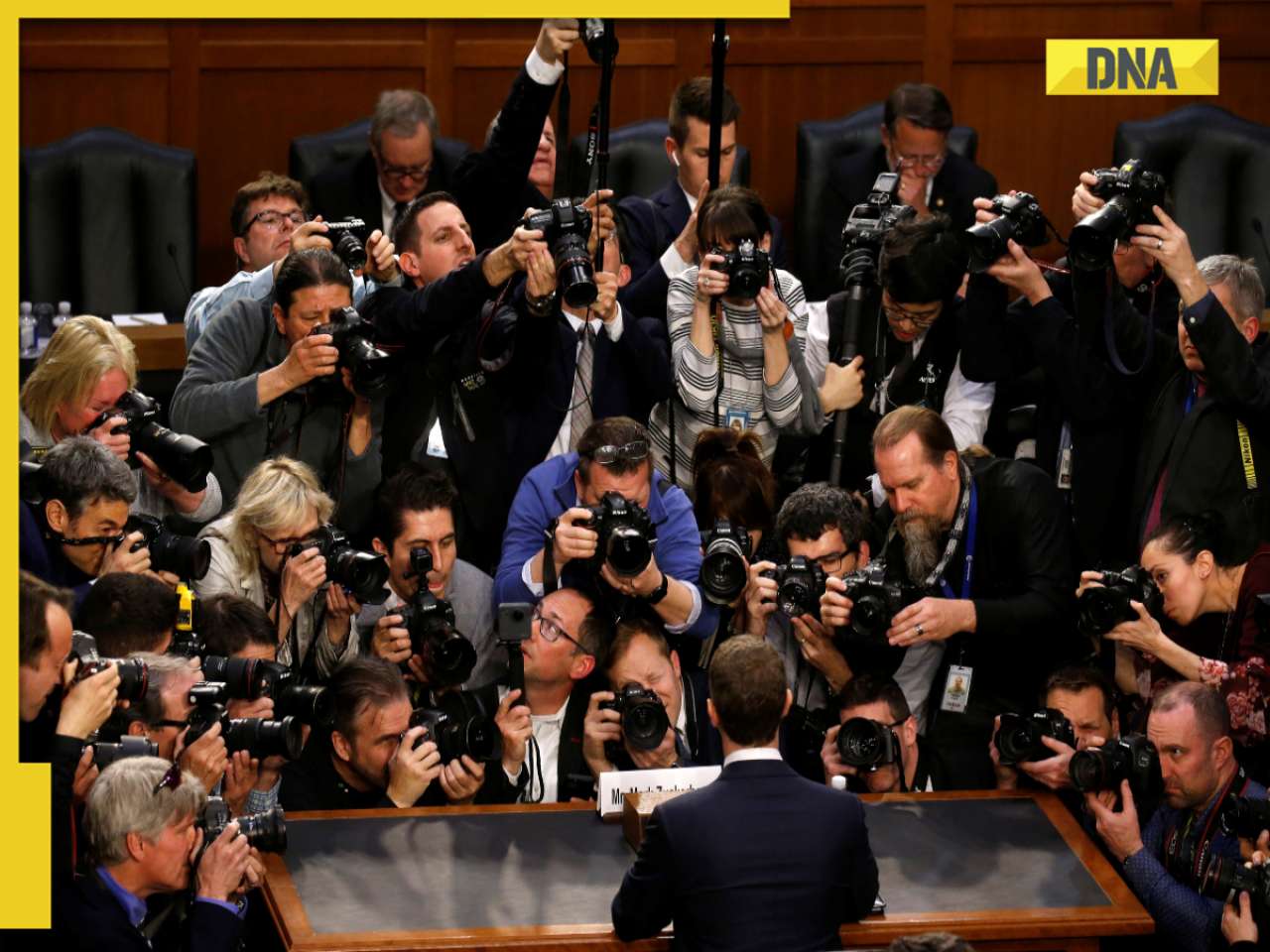





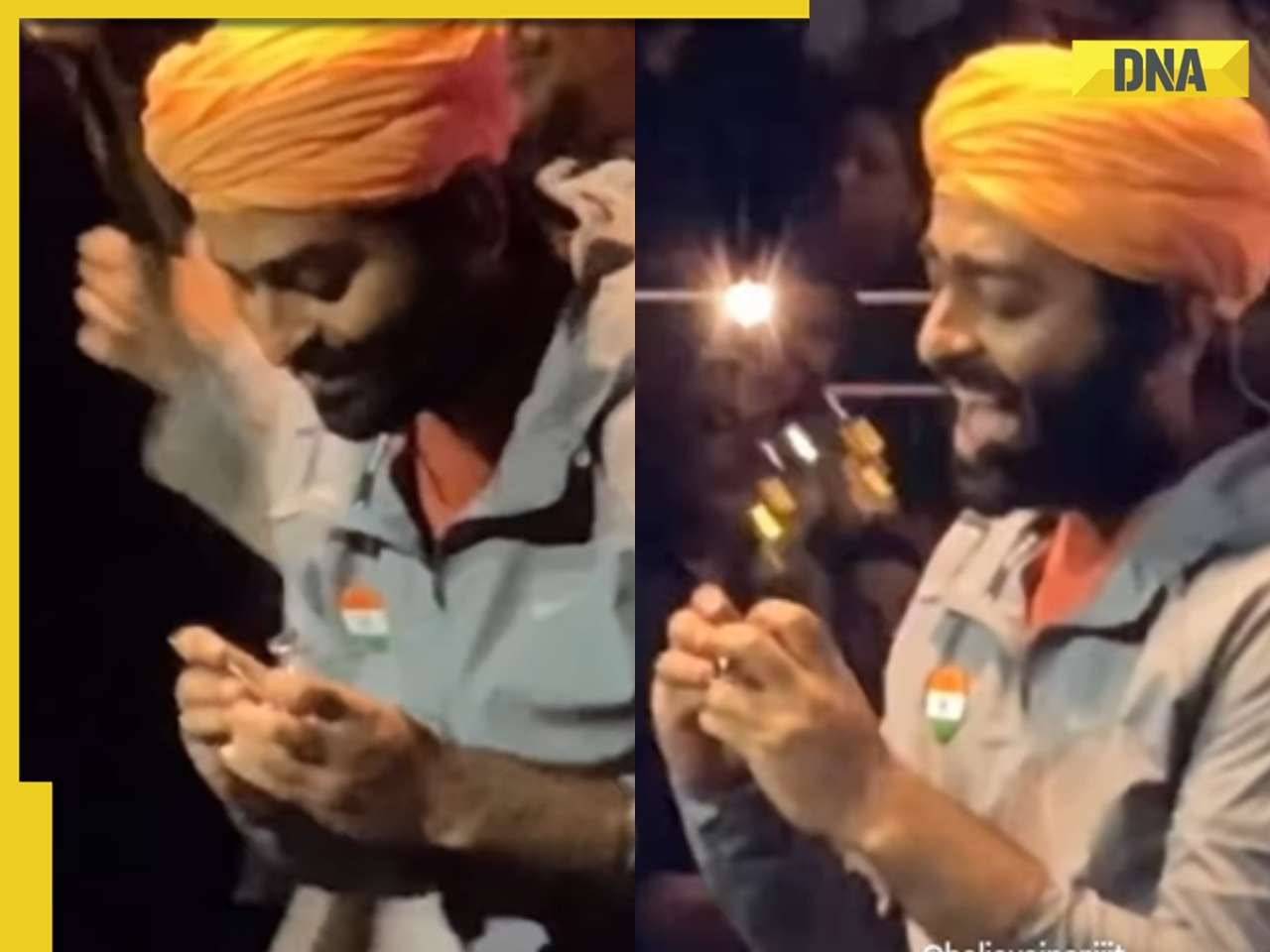

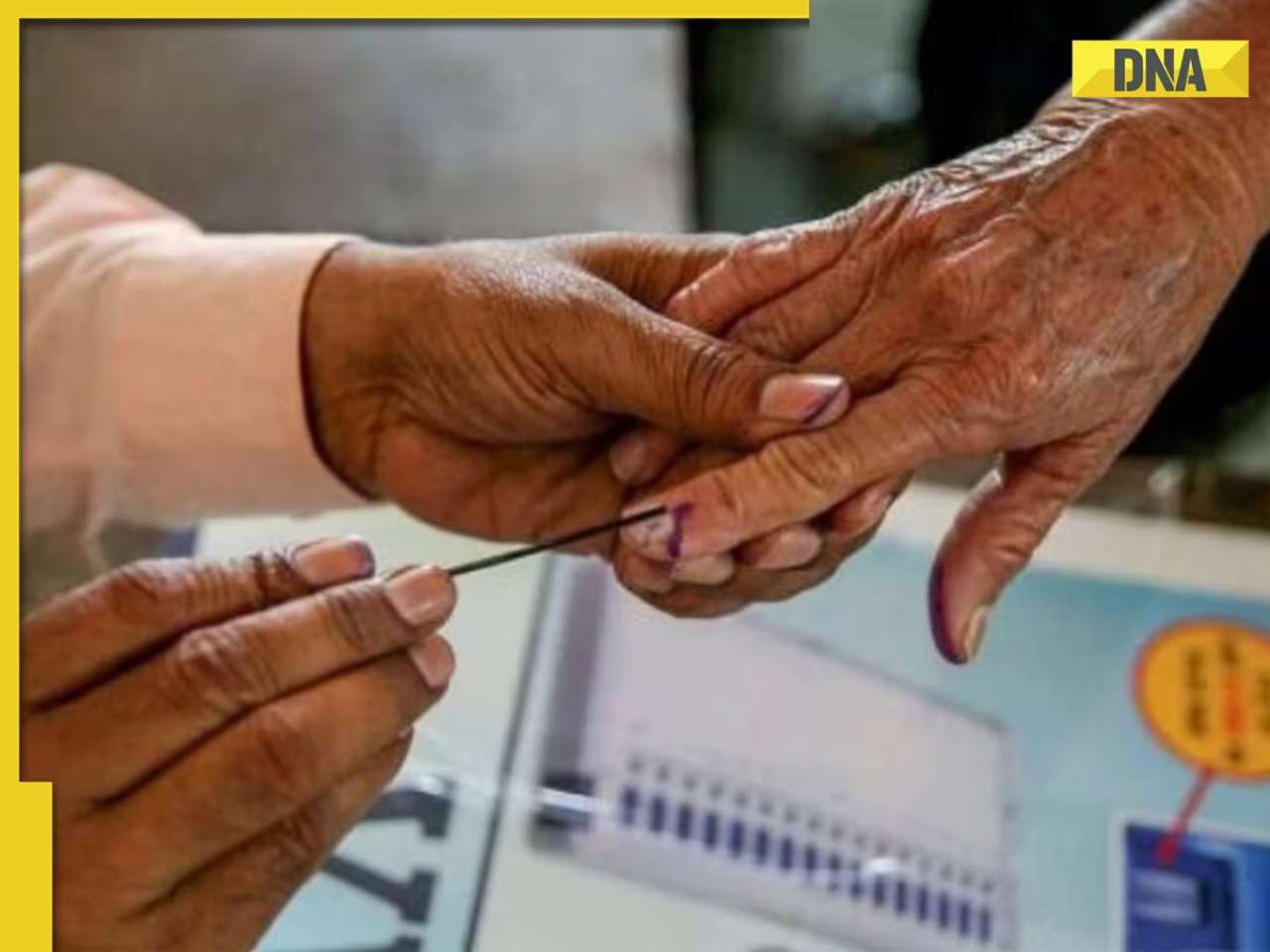
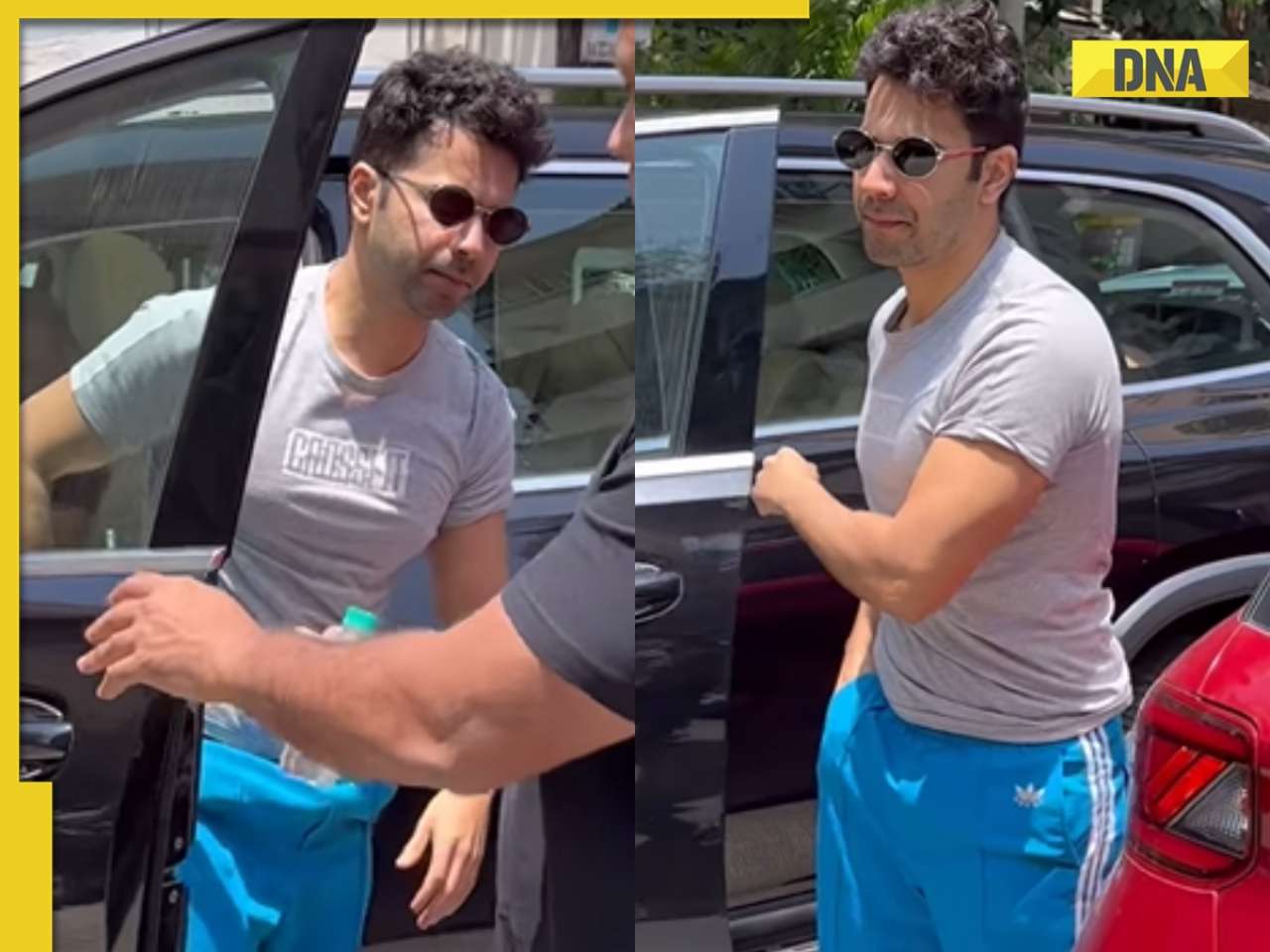
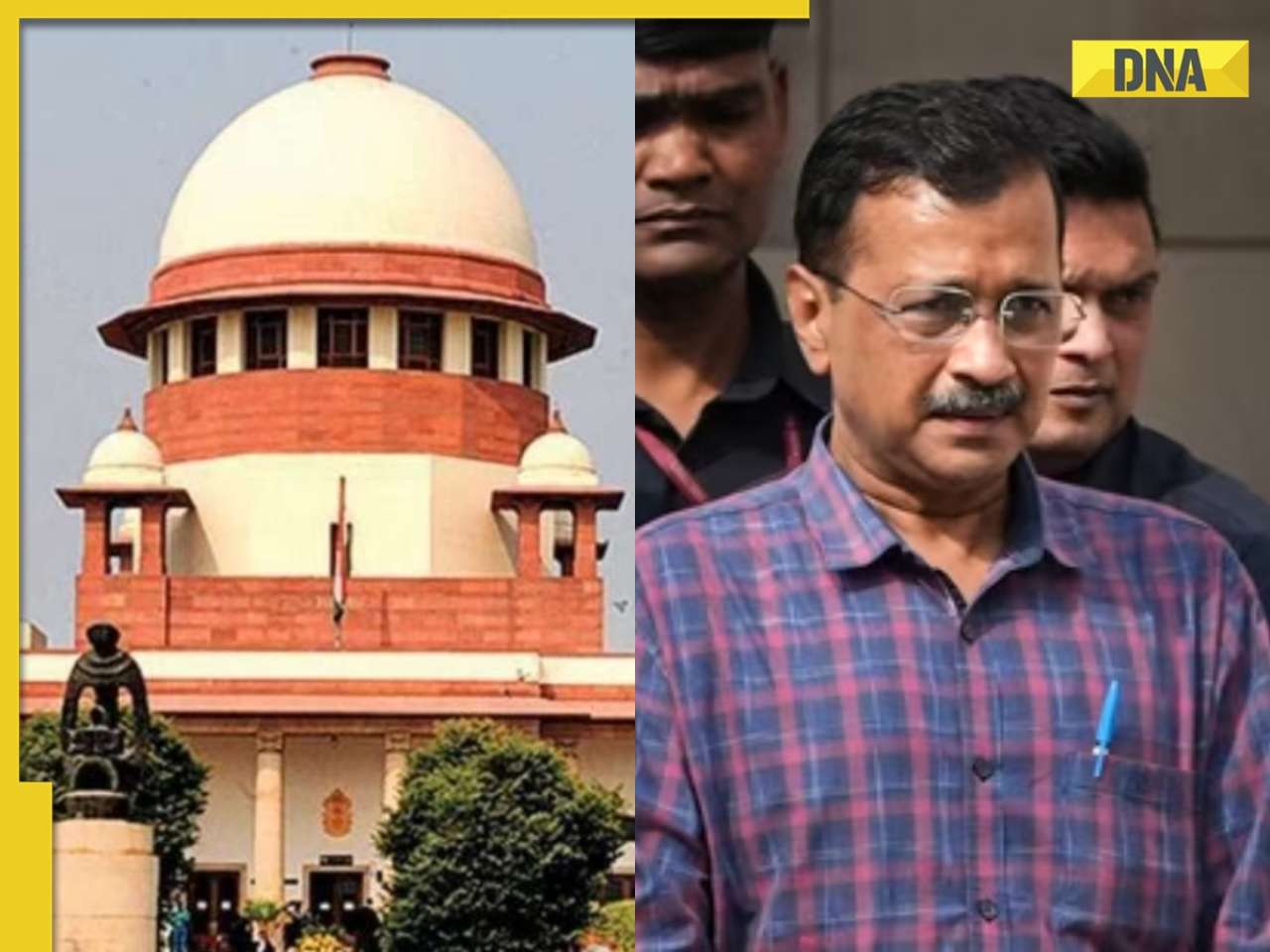




)
)
)
)
)
)